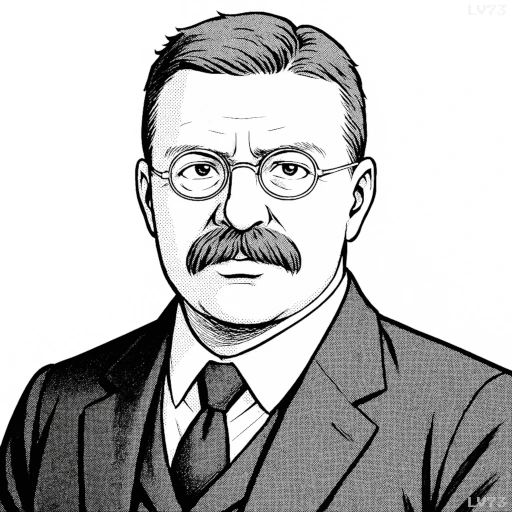“The pacifist is as surely a traitor to his country and to humanity as is the most brutal wrongdoer.”

- October 27, 1858 – January 6, 1919
- American
- Politician, military officer
table of contents
Quote
“The pacifist is as surely a traitor to his country and to humanity as is the most brutal wrongdoer.”
Explanation
In this quote, Roosevelt expresses his strong belief in the necessity of military action in certain situations, particularly when it comes to defending one’s country or upholding justice on the global stage. He argues that pacifism, or the avoidance of war at all costs, can be just as harmful to society as the actions of those who commit brutal wrongs. Roosevelt’s perspective is that in the face of aggression or injustice, inaction or passivity can lead to greater harm and suffering. By failing to confront evil or oppression, a pacifist, in Roosevelt’s view, effectively becomes an accomplice to the wrongdoers. He believed that sometimes force was necessary to defend freedom and human dignity.
Roosevelt himself was a firm believer in the use of force when needed, particularly in his role as a leader during the Spanish-American War and his overall foreign policy stance, which included a belief in American interventionism. He saw military strength as a tool for maintaining peace and justice, and he was willing to take action in defense of those ideals, even when it meant going to war. His words reflect his deep commitment to the idea that in the struggle between good and evil, sometimes a strong, proactive stance is required.
In modern contexts, this quote can be seen as a critique of pacifist movements that resist any form of military intervention, particularly in cases where regimes or groups engage in atrocities or aggression. While the ethics of war and peace are complex and nuanced, Roosevelt’s words speak to the belief that passivity in the face of evil can enable further harm to both individuals and the larger global community. It underscores the ongoing debate about when force is justified in the pursuit of justice and the protection of human rights.
Would you like to share your impressions or related stories about this quote in the comments section?




